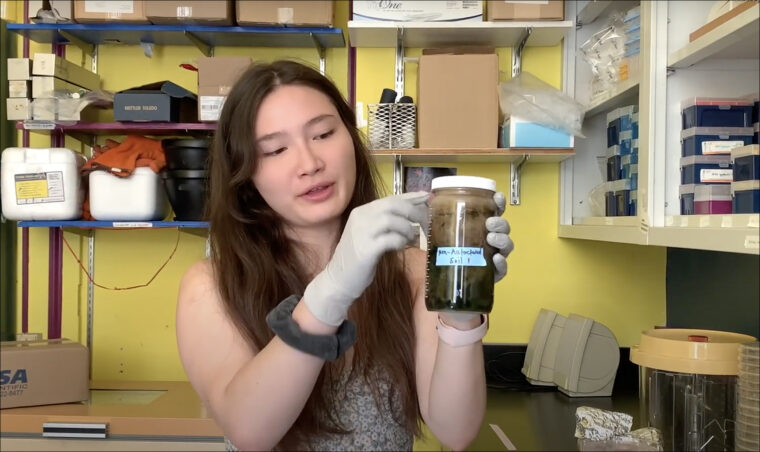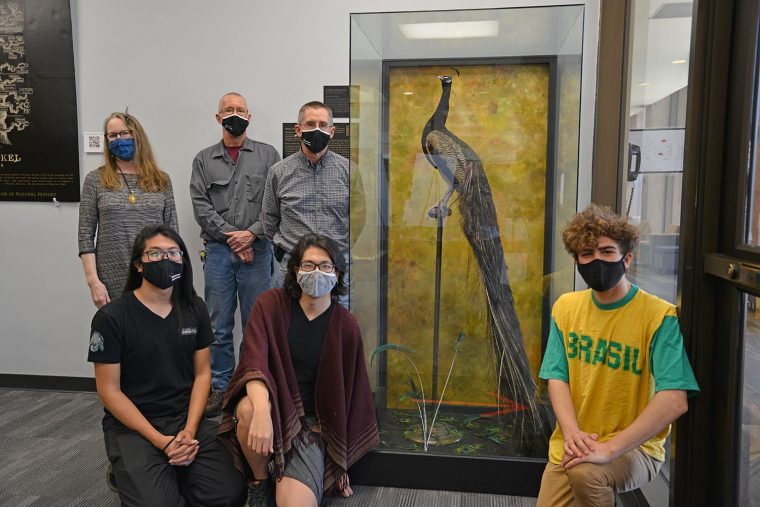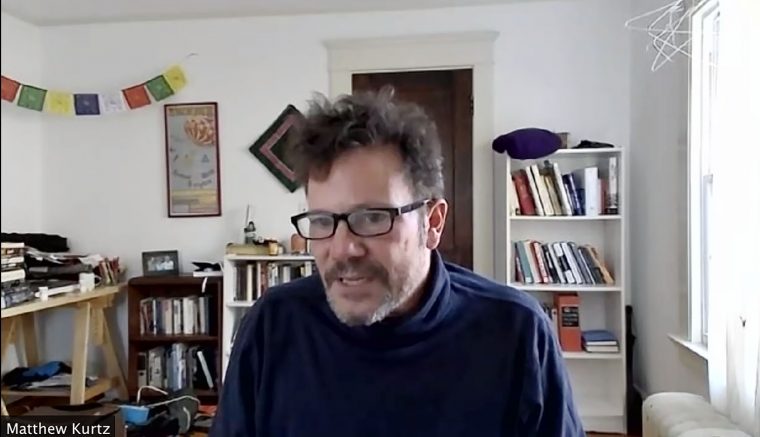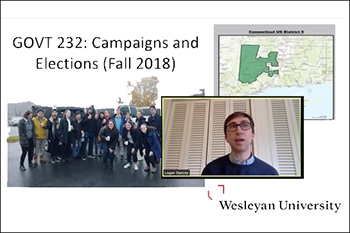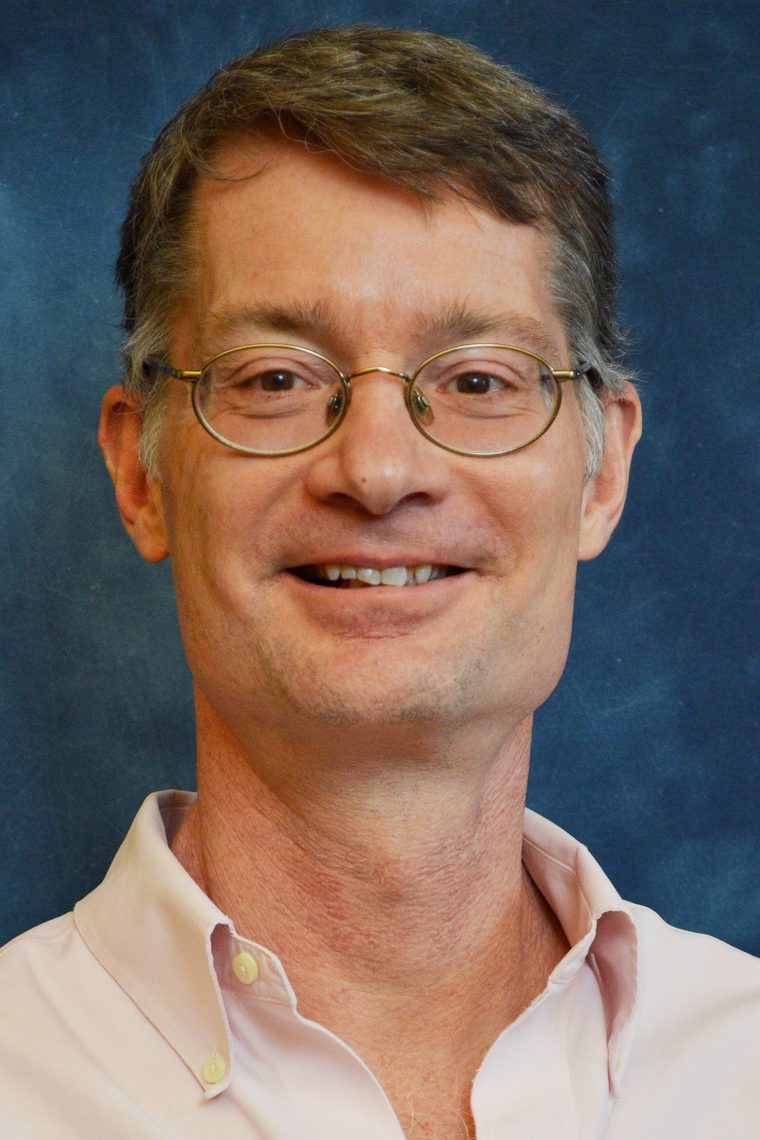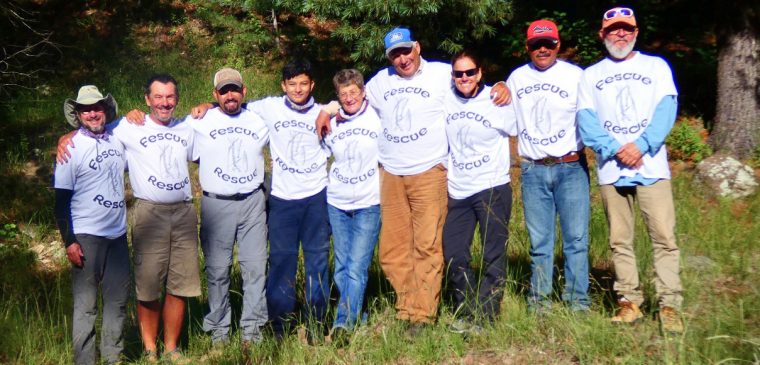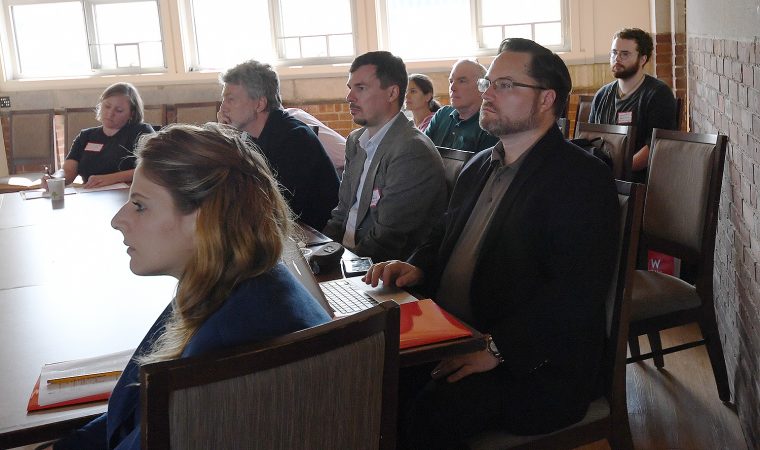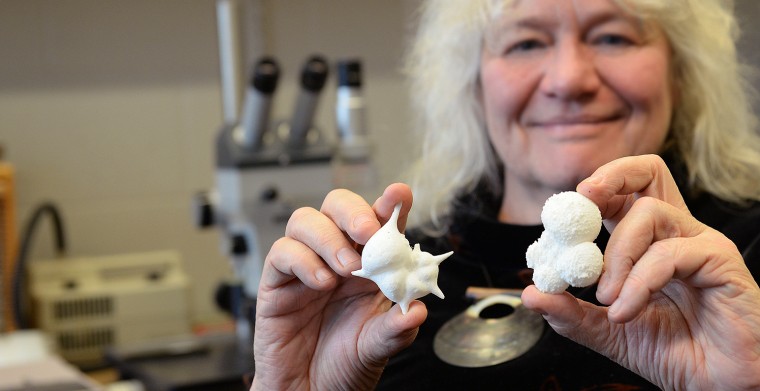A team of researchers at Wesleyan has discovered new strains of bacteria—located on the University's campus—that may have the ability to break down microplastics and aid in the world's ongoing plastic waste crisis. Microplastics, which measure less than .20 of an inch, enter the ecosystem— and our bodies— largely through the abrasion of larger plastic pieces dumped into the environment. According to a study published in the Journal of Environmental Science and Technology, the average person consumes at least 50,000 particles of microplastic a year and inhales a similar quantity. "Plastic is typically classified as a non-biodegradable substance. However, some…
When launching spacecrafts and missiles, small navigational mistakes could lead to catastrophic results. A satellite could spin completely out of orbit, a missile could mistakenly strike a civilian territory, or a spaceship could end up at another planet altogether. Three Wesleyan researchers are collaborating on the development of a novel sensor that would benefit navigation and several other applications. The new, hypersensitive acceleration sensor is based on a principle borrowed from nuclear physics and has been developed at Wesleyan. It provides enhanced sensitivity and precision compared to conventional sensors. "Our underlying concept can be applied in a variety of sensing…
The entrance to the Science Library in Exley Science Center houses a taxidermied peacock that has been restored by faculty and students in the biology department. The peacock, originally rediscovered in 2018 and put on exhibit in spring 2019, is part of a bird collection that was first displayed at the museum in Judd Hall and now belongs to the Wesleyan Museum of Natural History. The restoration team, which includes Professor of Biology Ann Campbell Burke, Yu Kai Tan BA/MA ’21, Andy Tan ’21, and Fletcher Levy ’23, recently updated the display to include new signage and fresh peacock feathers…
(more…)
Associate Professor of Government Logan Dancey foresees many important opportunities for students to get involved and make a difference with upcoming local elections this fall—and the Engage 2020 (E2020 initiative) will be a prime vehicle for that work. Dancey recently gave a presentation via Zoom video webinar to Wesleyan faculty and staff about his research on American electoral politics and his work with students on this topic. Featured as part of the regular staff luncheon series, Dancey’s talk was titled “Student-Centered Elections Research: From the Middletown Mayoral Race to E2020." (more…)
Stephen Angle, Mansfield Freeman Professor of East Asian Studies, professor of philosophy, has had a number of recent publications. Angle is the editor of “The Adolescence of Mainland New Confucianism,” special issue 49:2 of Contemporary Chinese Thought (2018). The issue is devoted to recent mainland Chinese Confucian philosophizing, and particularly to arguments about what “Mainland New Confucianism” signifies, which were prompted by noted Taiwanese scholar Li Minghui’s 2015 remarks about Mainland New Confucianism. Angle also wrote an introduction to the issue, which explores how Mainland New Confucianism has entered a somewhat more diverse and mature stage than previously. The introduction…
The rare Guadalupe fescue once thrived in abundance atop mountains spanning the Texas-Mexico border, however, the desert-growing perennial grass is now so endangered, it only flourishes in two locations on Earth. The rapid population decline is leaving scientists puzzled. "Developing an effective recovery plan is essential for protecting Guadalupe fescue, however, the lack of basic information about this species’ ecology is a serious barrier to that goal," explained Helen Poulos, adjunct assistant professor of environmental studies. "Urgent action is needed to stabilize the two extant populations." This summer, under Poulos's leadership, Wesleyan received a National Park Service Grant to study…
A new collaborative research hub, supported by Wesleyan's Quantitative Analysis Center, provides faculty and students with the tools to prepare, analyze and disseminate information on movement, travel and communication in easily-accessible formats. The Traveler’s Lab, developed by faculty members Gary Shaw, Jesse Torgerson and Adam Franklin-Lyons at Marlboro College, connects the faculty with each others' projects, but also with students who are interested in an interdisciplinary approach to historical research. (more…)
Mike Robinson, assistant professor of psychology, is a co-author of a paper titled “The impact of junk-food diet during development on ‘wanting’ and ‘liking’.” The paper was recently published in The Behavioral Brain Research Journal. His co-authors include Wesleyan alumni Ellen Nacha Lesser ’15, Aime Arroyo-Ramirez ‘16, and Sarah Jingyi Mi ’16. The research looked at the developmental impacts of a chronic junk-food diet throughout development and how it blunts pleasure and affects motivation. The study found that chronic exposure to a junk-food diet resulted in large individual differences in weight gain (gainers and non-gainers) despite resulting in stunted growth as compared to chow-fed…
Four Wesleyan academic departments, from psychology to dance to chemistry to biology, are competing for grant funds through a new crowdfunding site specifically designed for research project fundraising. Experiment.com's Challenge Grant for Liberal Arts Colleges asked scientists to define a scientific research question for the crowd with a prize for the project with the most backers. The pilot launched on Feb. 24 and concludes March 25.During this 31-day period, the goal is to reach $4,000 in funding. If so, the team is granted the money. If not, they receive nothing and no one's pledges are charged. By backing a project, participants will receive updates, results and data from project creators. Wesleyan research include how the…
Johan "Joop" Varekamp, the Howard T. Stearns Professor in Earth Science, led an invited talk at the American Geophysical Union (AGU) meeting in San Francisco, Dec. 2015. The earth and space science community participated in discussions of emerging trends and the latest research. The session, which was co-authored by former Wesleyan E&ES graduate student Lauren Camfield, focused on the 2012 eruption of the Copahue volcano in Argentina. Due to the success of the invited talk on Volcanic Hydrothermal Systems, Varekamp will be a co-editor for a special issue of a journal based on that session. As part of his role as…
#THISISWHY Research Professor Ellen Thomas grasps a glass-enclosed sample of hundreds of microfossils, each a white fleck of limestone barely visible to the human eye. "The first time students look at these they say, 'they all look the same to me,' but in reality, they are all have very different shapes," Thomas says. "Even under a microscope, it can be difficult for a new eye to see the differences, but each species has its own shape; some have a much more open, light structure because they lived floating in the oceans close to the surface. Others have denser shells and lived on the bottom of the ocean,…


